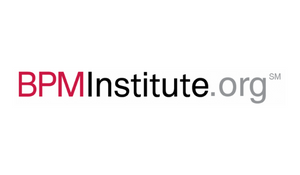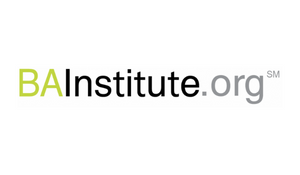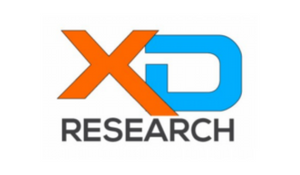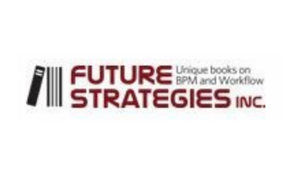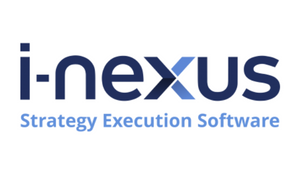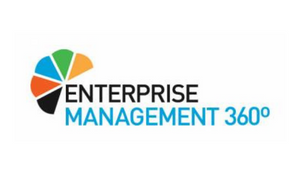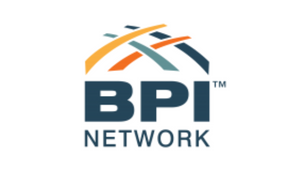
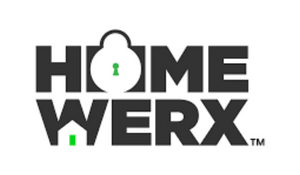
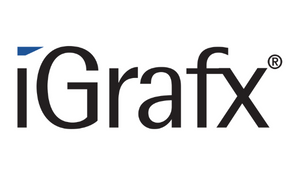
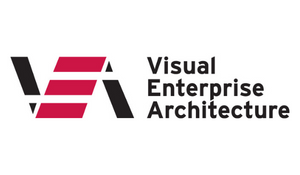
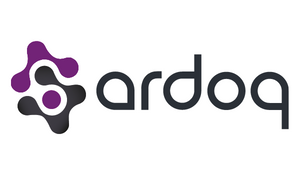
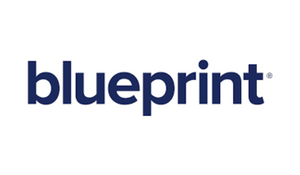
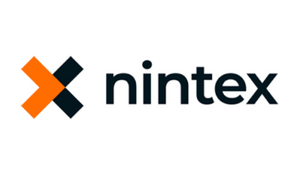
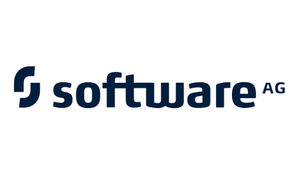
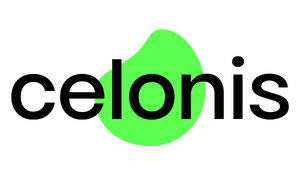
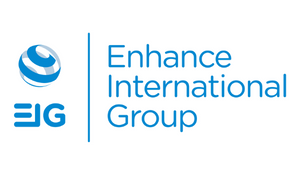
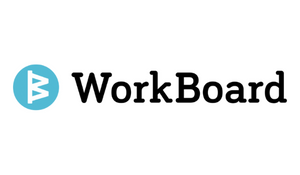
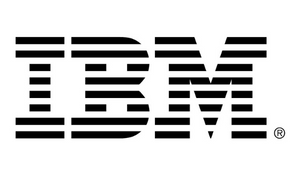
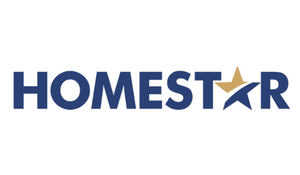
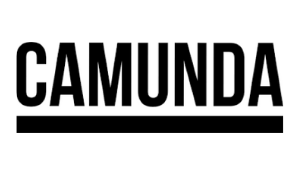
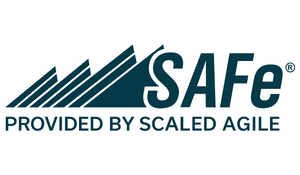
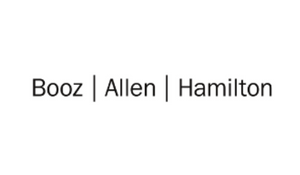
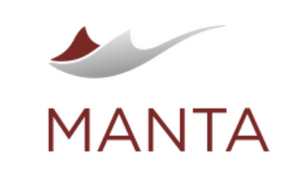
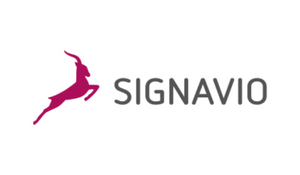
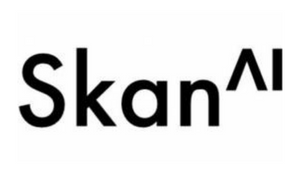
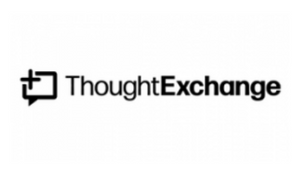
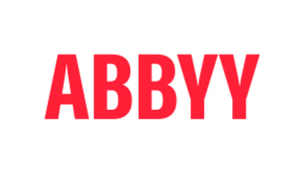
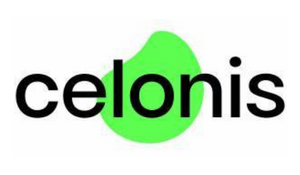
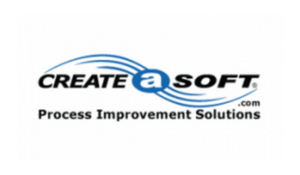
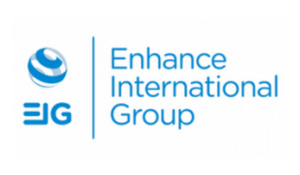
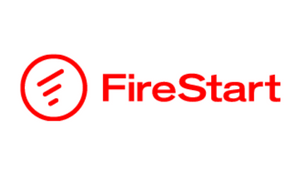
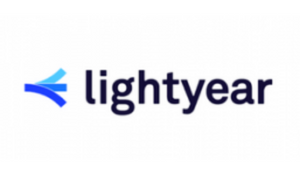
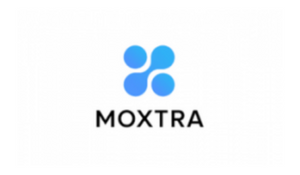
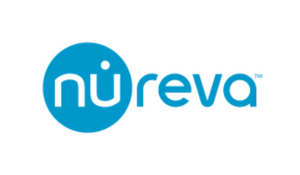
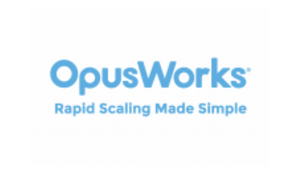
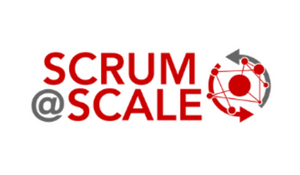
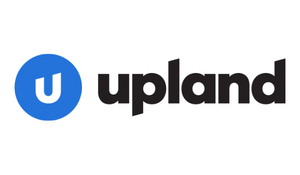
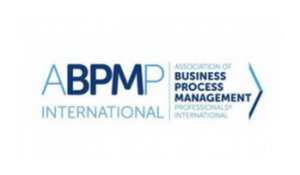
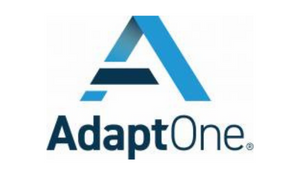
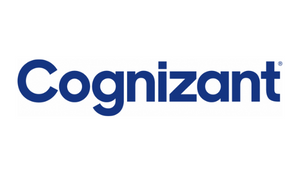
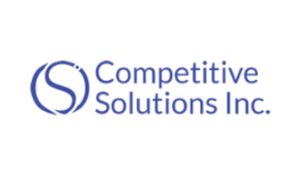
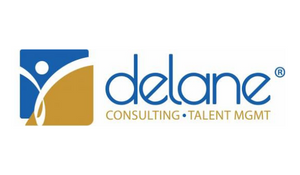
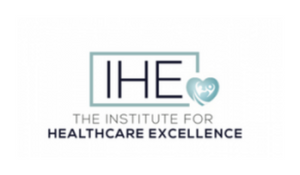
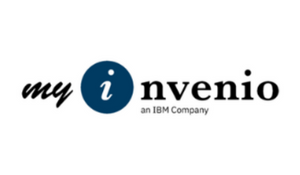
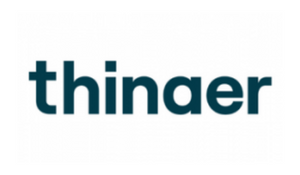
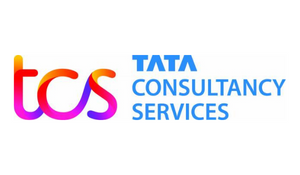
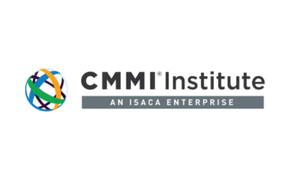
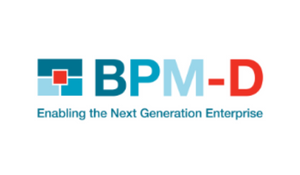
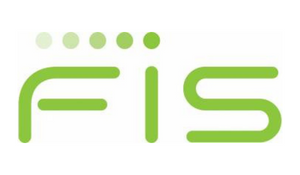
Courtesy of F. Hoffmann-La Roche Ltd.'s Alain Bindels, below is a transcript of his speaking session on 'Design Thinking Methodology in Enterprise Architecture' to Build a Thriving Enterprise that took place at Enterprise Architecture Live Virtual Conference..


Session Information:
Design Thinking Methodology in Enterprise Architecture
Session Transcript:
Our next speaker, coming directly from France, to the world, we have Alan buying those with us, Head of Innovation, Facilitation, and digitalization for Hoffmann La Roche.
Allan's a train Agile coach, transformation lead with experiencing human and patient centric design of healthcare and has been working more than 12 years at Roche in different roles.
He has extensive innovation management experience, setting up innovation labs, innovation programs, open innovation, crowd sourcing, knowledge management, and building innovation cultures. In addition, he's leading an Innovation Network at Roche to support the business, to innovate and manage innovation programs to support digital transformations.
Ally has set up an innovation agility program, should be able to build new capabilities in the organization To support the organizational transformation.
The program focused on agile ways of working, including rapid progress prototyping, co creation, and co creation with customers.
The program supports the company's transformation to move the organization to a more self organized, self directed approach. Alan, it's a real pleasure to have you with you from France to our global audience. Thank you for sharing your expertise with us today.
Thank you, I'm very pleased to be here today.
-1.png?width=350&name=Screenshot%20(28)-1.png) OK, OK, so I will share my screen, is urging, working, you can see my screen. Looks great.
OK, OK, so I will share my screen, is urging, working, you can see my screen. Looks great.
Thank you. Yeah, so today, I will speak a little bit more about scaling innovation and how we do this and brush. I mean, we have been in a transformation in the last 3 or 4 years, focusing on digitalization and also on a new way of working in a company.
So I will speak a little bit more about this.
And, of course, has learned a lot about digital transformation, especially. Especially in healthcare. All of us, we had to completely shift, you know, the way we're working. I mean, hospitals, doctors had to really become more focused on using digital tools to connect with our patients, connect also words with our industry. So it has been actually a very good moment to also push more digital transformation in the healthcare industry.
So, of course, it's a tragedy, but there's also a lot of opportunities I would say, for digital transformation in this, in this crisis.
So what we really try to do at Roche is to really prepare our company and our employees for future skills.
And, I think this is really important, especially for more traditional oriented industry, as the pharmaceutical industry is, we really need to shift, you know, our skill set, of course, becoming more focus on technologies and new technologies, so, more focused towards tech industry. And combining tech industry with pharma industry, I think, will be really good combination, right.
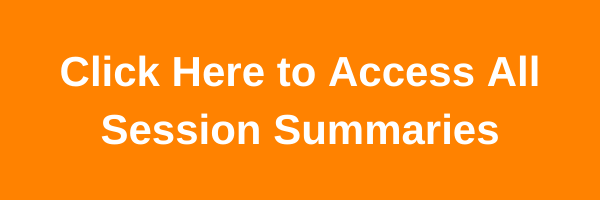 So, we really tried to hire also, new type of employees with digital skills are coming from tech industry, and really also training our current workforce in these skills.
So, we really tried to hire also, new type of employees with digital skills are coming from tech industry, and really also training our current workforce in these skills.
So, we're focusing on many different skill sets, but the main focus, I would say, is really on customer centricity.
So, one of the big shifts that we are seeing now, is to focus more on understanding your customer needs, Engaging directly with customers, and also co design solutions with them.
It's very critical, I think, for, for our future success agility, of course, which is coming, you know, originally from where IT or tech industry is now also coming into the farming industry. Really training our, our workforce in agile being, and doing so already. Scrum, safe, and other agile frameworks, and focusing also on experimentation, mindsets, and a designer mindset. I think this is really critical skill sets that we're focusing on.
Mean, collaboration is very critical. Partnership. Again, also with external partners, tech companies, even startups, are becoming more and more critical, as we cannot do it, only by ourselves. I mean, we're really good at developing new diagnostic tests and medications. But as you think about digital health, you need to really collaborate with tech companies, which startups that are experts in those fields.
So really building those ecosystems in your countries is very important rights for all the different affiliates. They're trying to build local ecosystems with, with tech companies, which startups, also with hospitals, with patient organizations, to really understand the needs better and to co design them those solutions.
Because of the collaboration aspect, of course, emotional intelligence is very important, and collaboration skills.
Then, this New Way of Working, or, new way of thinking, is also very critical.
So, our leaders and entries have been trained in this in focusing, mainly on some thinking, like understanding the system, so understanding better, how the different stakeholders and pieces fit together, also, focusing on future thinking.
So, trying to understand what are the future trends in healthcare, trying to predict trends, also, opening up and looking at different industries, or even different companies, and, of course, being as diverse and inclusive as possible. Reiser, also, diversity and inclusion in our workforce is very critical.
Then, the focus on innovation, It's very important, right? So, focus, of course, on impacts for our customers.
Also, having a growth mindset, right, from being an open mindset, in understanding, OK, the opportunities, and possibilities, rather than all the threats, and, and the difficulties, And focusing also on innovation coaching shows.
So we have really trained innovation coaches in the company across many different departments, so from commercial to R&D to IT, that really are there, to coach digital projects in the different functions to really be successful.
So, as I already mentioned, agility has been huge, key elements for us.
And they started like four years ago, where the Board of Rush, when you said, OK, we wanted to become more agile, companies, are really, to board, took this decision, and all the top leaders are being trained and being coached, and what those Agile leadership mean.
And, of course, I mean, for a lot of the tech companies, is maybe already quite old, already existing. But, for us, it has been a big change. Meaning, also, more empowerment for employees, maybe less top-down management, and controlling the employees, being also more self organized, right?
Like having squats having a small teams to take decisions that are fast, being more customer centric.
And, of course, the ability to adapt to change this, this whole transformation program, is now, I would say, like, four years old, and now, we're really working with more operational side of the organization to really build up the skills. So, all the top management has already gone through.
The, more than bottom-up as well. We're now training everybody in Scrum, design thinking, agile, frameworks, and Agile methodologies, to really adapt this change into an organization.
Another important aspect, of course, is the culture, and the mindset, and we build up different focus areas in the company on digitalization. So we have, like, different working groups that are focusing on on, on digital trends.
For example, RPA Right, or Robotics Automation, digital healthcare. And we have some kind of a platform as our internal platform, Social Media Platform, where different groups get together globally. So they can connect with each other, share Knowledge, also, find out what our initiatives that are happening. In asia Pacific or in Europe, or in US, and share the knowledge across.
Then we also have Additional Data Academy, where we really help employees to develop more digital and data science skills. So to really become more familiar with, like, RPA, AI, automation, all these different topics, and really also learn from each other.
So we have a lot, of course, data scientists that we're hiring, so we're hiring a lot of employees, were new skills on AI and automation. But we also tried to train existing employees in these skills, in addition to Academy.
This culture of innovation is very critical, and also very close to my heart. I mean, I used to work in R&D years ago, and already, then, I had a, really a passion for innovation. And I think we started to create like some kind of a network of innovators who are entrepreneurs in the organization to spread these mindsets, and of course, in the beginning, I mean, speaking 6, 7 years ago, was very challenging, because people were not ready for it.
.png?width=600&name=Copy%20of%20Email%20Graphic%20Virtual%20Conferences%20(3).png) Whereas now, today, we have like a huge network of many coaches, facilitators that are spreading this, this way of working. And now, it's also much more wanted this, We have this Agile transformation, there's more and more interesting people and nobody skills, and nobody's methodologies, and also supports innovation and digital projects, Which is innovation mindset.
Whereas now, today, we have like a huge network of many coaches, facilitators that are spreading this, this way of working. And now, it's also much more wanted this, We have this Agile transformation, there's more and more interesting people and nobody skills, and nobody's methodologies, and also supports innovation and digital projects, Which is innovation mindset.
So, of course, the future of health care is going to shift tremendously. And, of course, there's a lot of trends that we can can discuss in this perspective. Some of the trends that we see specifically also went to covert, is the Virtual Clinical Trials, right? Somewhere remote trials for The patients cannot always come to the hospital. Maybe some of the tests can be done from their home, you know, using sensors using also, home nursing, and a nurse goes there to the house and they and they really do the do the test at their house.
Real-world data is really important, right? So, rural data analytics just won't.
So, collecting data directly from the patients. Using patient reported outcomes.
Again, using medical apps, using sensors, then, of course, you need to analyze that data transfer data. Analytic skills are very critical, and we're building up a lot of these skills also internally.
Real-time patient monitoring is very important for us. So, we try to rollout as, as much as possible, like, digital services for our patients.
So we can also monitor them during their disease, during their treatment, and see how the disease is progressing and how also they are improving. And of course, this can help us to, to better personalize the treatment and to also predict whether the treatment is working well.
Process automation, of course, or RPA, is very critical for us, and many in manufacturing, also in, for example, the clinical trial area or in a supply chain. So there's a lot of automation projects as well, that we're looking at.
And, of course, the future of supply chain will change tremendously.
I mean, using sensors, predictive analytics, so you know exactly where there's a site or a hospital without medication. So it automatically is re-ordering for example, medication.
So, all of these changes, of course, are growing rapidly using new technologies.
Another important aspect is how do we engage our customers. And, especially, again, during the time, a lot of the customers, We couldn't see them, right. So, we couldn't visit them in the hospital. We couldn't go to the doctor's office or to the patients.
So, you have to find different ways to engage with your customers. And additional customer engagement, I think, is also a very important trend.
Like, how can we better engage with our customers, make it more more interesting for them, and focusing on things they want to see on service just they want to want to have. So this is, I think, more increasing fueled, where we try to innovate as well.
And why I'm speaking again about this customer centricity because empathy and listening to your customer is very critical. And I think all of you probably notice it is a competitive advantage, right. Issue understands your customer.
It's and it's not the same as doing secondary research or surveys, or Margaret ..., which is all indirect information. I think the most powerful tools to directly speak with them, to really understand their needs, and also to validate your assumptions, or the solutions that you're working on with them.
So, we tried to also bring this, this mindset of co designing solutions with customers, which I think is going to be the future, It also will understand, I mean, you also understand, of course, the perspective of the customer better.
And this will also create some kind of an emotional connection and also some kind of a purpose for the employee, right. If you know you know that a patient is struggling or doctor's struggling, you really want to help them and really, you want there to improve their situation, say. Well, it's also Chris Purpose for your employees to focus on the On the customer. Centricity.
Another big elements from my work as well is unlocking entrepreneurship skills. So, of course, we're a big organization, and we're at 90,000 people. But, we want to become more, let's say, nimble, more fast, more, and more agile. And, of course, we can learn a lot from entrepreneurs, from startups, right? So, how can you bring like a startup culture into a big organization has rush?
So, for us, we tried to build innovation ecosystems, and, again, bring this startup culture into our organization.
Also, improve collaboration with the external ecosystems are which startups, with patient organization, with hospitals, with customers. And also, do faster, simulates faster decision making and more an iterative process towards innovation.
So, we launched, actually, last year, a program for entrepreneurs who are intrapreneurs as well. And this is really contributing to our rushed and tenure ambition.
.png?width=742&name=Screenshot%20(4).png) We want to become a partner of choice for digital health innovation.
We want to become a partner of choice for digital health innovation.
Some kind of a platform, right? I mean, it's it's a platform where we really connect internal experts with external experts to really co create new solutions.
It also provides a safe learning environments for employees, where they can really experiment on digital projects on or maybe projects that are more complicated and more complex.
And it's, again, it's a Safe Learning Environments, or if they make mistakes, if it doesn't go well, there's no, like, you know, I'll just say there's no way that they're being punished or that it's like their bonus is being impacted or something.
It's really a place where they can experiment, where they can really speak with customers, try out new things without running a risk, right? So, it's really removing the barrier for innovation, for the employees, and of course, also for our customer.
So, in this program, we focus again on this innovation mindset.
So, during this three month program, they learn new skills for innovation, like how to, for example, you know, develop a business plan, how to also do the customer validation of that technology. How to also fish, for example, their their, their final solution or experiments?
Again, all these skills are being used and learned during this program.
During the program because it's often digital projects, they're of course get to know more about these digital capabilities.
They are, you know, co developing again with digital experts, right. So they they really meet also digital experts in the field. They learn from them. They also integrate those digital capabilities in their work.
So again, this is a great learning and development opportunity for the employee customer centricity as well. So we really are kind of customer journey and designing a solution together with the customers. So we really connects with hospitals, with a doctor, with a nurse or for example with the patient if it's a patient patient focused solution.
So, they really learn this skill by doing it right, by really connecting with your customer indirectly, and getting also feedback on there, proof of concept on the experiments that it really, you know, gets feedback throughout the program.
During this program, again, they also learn this as your way of working, and we have also agile coaches assigned to each projects, or each project.
Is a small team of 4 to 5 people, including one Agile coach, an internal Rush colleague, actually, that is really equipped with the knowledge to coach the team throughout the treatment process.
It also will help us to leverage and attract talent, right?
I mean, we want to also open up more towards different type of talent. Maybe people that are not coming from pharma industry originally can be students that can also participate in these programs. And also promote. again, this collaboration and innovation approach, right?
This, if you work for us, you want to really, you know, be staying with Russia because we offer these kind of innovative programs.
You can work on your idea on maybe addition to ideas that you have and you can develop them. So, it's really giving us at a time in the 20% time commitment.
and these employees can work on such a project, Again, just partnering. So we work also very closely with procurement, and with Rush partnering and the venture funds to create a new partnership with startups and experts.
We have also developed a database of innovative startups where any type of company just want to collaborate with us. They can register in our database.
And we can then screened a database based upon the business challenge to see if there's a right fit to partner with an external company. And I think this is really good to also stimulate this external partnership. Not only where it's like the big, you know, big technology companies, but also, smaller players, didn't bring like unique skills and unique technologies to the table.
-1.png?width=350&name=Screenshot%20(28)-1.png) Again, developing these ecosystems is very critical.
Again, developing these ecosystems is very critical.
This is also happening often at the country level, at a local level, where really the affiliate state, they build connections and partnerships. Again, with the local healthcare ecosystem, with patient organizations, startups with also the health authorities.
And again, in that ecosystem, you can then develop new solutions and also build trust and partnership to create those solutions. Then, very important for us is to accelerate those digital projects and scale them up once they're, you know, at the end of the program that they're ready to scale up.
For example, at a country level or at a product level, trends is really the aim to really scale them up, that they can be rolled out and be implemented more globally.
So, it's really like own Accelerator program or incubator program, where we again run the experiments and the proof of concepts.
And once they're validated, then of course we can scale them up, right. But it's really in the initial phase is validating the technology and validating the experiments.
Within this umbrella of the initiatives, we're for different parts. So, one is your entrepreneurship program, this three month coaching program, where we really explore like digital projects.
And, run this for three months, where it gets coaching, clinical Startups with customers. And really, design, let's say, experiments and proof of concepts. Then, the second pillar is Startups on Science. So we're working, of course, to bring startups on Science due to common 19th has been delayed, but we're still working on this year on a virtual connection.
It's a moment, but really, to bring, also, startups on the Rush Campus tragic and really gets access to the rush, employees, to the Ross resources, and to also again, you have events with them hackathon workshops, but also have them closer to our, to our Russian colleagues.
Then we have a startup exchange program that we're currently piloting.
We're, rush college can rotate into a startup.
So, this means Rush Colleague for a short-term assignment, they rotate into startup.
They learn from their way of working from the new technology. Startup is benefiting from the expertise, Meet a legal expertise, regulatory expertise, digital expertise, whatever type of expertise to startup needs, to really have a win-win on both sides, right? So, it's learning by doing really good to exposure to the startup culture.
Then, the fourth element is to external accelerators. And we have also a contract with plug and play craze where, where we really are accelerating and investing in startups. So, we have like every three months, a batch of 5 to 6 startups. That is being accelerated, and of course can also access to rush resources, coaching, etcetera.
We organize innovation events, of course, at the moment, all virtual.
We also have to start up engagement tool, where we've built this database, where we also organized, like, startup days, or technology focused days, where we, we have pictures of external companies to our Russian colleagues.
So very important, when we designed this program is to have an editorial for each partner, writes from very important. There needs to be a value for the external partner, media, startup, or an external company.
The benefits, of course, for rush, focusing on the rush tenure strategy on our, on our 10 year ambition.
And very important is also the benefits for the employee centers. Again, these programs are development opportunities for employees, and is also somehow a benefit.
Of course, too, upskill your employees, that they are satisfied, and they're excited about to work, and we are satisfied.
And excited employees, you will have a bigger, I would say, impact, and, of course, a higher motivation of your, of your workforce.
So a little bit more about this entrepreneurship program that we started last year in 20 20. So we organized an Innovation Conference when she is our yearly innovation Conference.
Again, this will be this year, on the 15 or 16 of June, the last year, at 23rd of June, with 50 different business challenges.
And we organized a hackathon with these projects, with internal and external partners.
So, they were startups there, and there were a customer, Stereos were involved, and out of the Hackathon five winners were selected.
Then we had a kickoff week, were during intense, one week, all the teams for being forward. They were meeting, also, the external partners to startups. And they were really trying to fine tune, OK, what is the concept to what is their business proposed that they want to work on?
After that, Kickoff week, they had done weekly coaching sessions with their, their kosher was assigned to them, and we had monthly, let's say, workshops, as well.
Longer work shows where we got together with all the teams, share with them.
Or they shared, of course, with us there and their progress, but we also help them then, in their next phase of the project, then at two phase, for the investment, right. So they really had to do the experiments, the proof of concept, and show the impact that their experiment has made on our customers, on our business model. And of course, pitch to our senior management to say, OK, we have shown this in his impacts, that we need more funding now, to implementation to go to the next level.
.png?width=600&name=Copy%20of%20Email%20Graphic%20Virtual%20Conferences%20(3).png)
And of course, some of these projects that were funded, and they moved up into scaling shapes where we really are then upscaling their experiment into a more global organization when a specific business units.
And to also, maybe end my presentation, before we started this whole program, we actually met many different stakeholders. Or we did also some workshops with universities, with entrepreneurs.
Startups, also with local government organizations in the region to really understand, OK, what is the benefits for them? What do they want to see, right?
And we designed this program based upon their input to really make a program that is added value for, again, for us, but also for the employee, and for the, for the entrepreneurs and startups.
And I think it has been a great journey so far.
And I'm sure that's in the next couple of months here. So we will see more and more of these programs. So I'm looking very much forward, also, to your questions.
And of course, learning and innovation go hand in hand. All right?
And I think it's the arrogance of, you know, we were successful yesterday or last year and this will be sufficient for an issue. I'm sure it will not be enough, right. So, I think we need to continuously re-invent ourselves, trying out new things.
And also, again, partnering for me is all about, you know, building new partnerships for new solutions that our patients need tomorrow. So, thank you very much for your attention.
I'm looking very much forward to your questions.
Alan, what a fantastic presentation. Thank you so much for sharing this insights on how.
Not only?
How you do innovation and how you're scaling innovate, and in that respect, let me change my background just to fit the theme here.
And, and I would like to ask the audience, please provide your feedback and your questions right now. We have a global leader, an expert on innovation acceleration with us, and I wanna make sure that you get the most value from this infection By asking the questions there are most important to you and your contacts.
So, I'm going to monitoring the Questions box for your questions, so that I can relate them to Allen in real-time. So let me make sure that I have my my screen correctly aligned here, so that I can see the questions coming in as I, as I, as I pass on some of the comments and questions that came up during your doing Alan's presentation.
So the first one has to the first of all, lots of comments about great presentation, great, you know, view of what the organization has undergone and the systems that you have put in place. Tell a little bit about store. For those who don't know, what kind of the size and scale of what you're doing here, What is the size of the organization and number of employees, you know, the business units around the world? Things like that. So that they have a bit of field. Yeah. I mean, our company is 90,000 employees, right? So, we have like, like the pharma division, and the diagnostics division, we started to separate divisions.
So, really focusing on developing treatments. and the other for diagnostics, focusing on developing diagnostic tests. Also to cope with 19 test, for example, We have developed.
But I think the interesting parts, or what I was showing as well, like, these programs, so we started this last year, and we see now also, across the world, in the affiliates, We are expanding these programs, right? So we also tried to do this as an affiliate levels, right, in different countries. So this was done at the global level. But now we're trying to implement these type of programs with, with our partners. Should we work with board of innovation? Was our partner for this entrepreneurship program to expand these programs in the affiliates.
So instead, of course, I mean, region. All right, so in APAC, we have a similar program has shown America, we have a similar program. This one was maybe focusing more on our headquarter sides right in European headquarter. We're based in Basel.
But I will say this, this whole, that's a change and transformation in a way of working has been everywhere, right, To rush pharma in diagnosis in the affiliates are dirt.
.png?width=742&name=Screenshot%20(4).png) These coaches, for example, I was mentioning, is coaching, mentoring versus global, right? So, these are people in different countries, completely different backgrounds, that are part of, we're kind of a tool where you can also find, for example, agile coaches or innovation coaches. You can say, OK, I'm looking for a coach in this region, or in Africa, or in Asia, and Europe, and then you can scroll to the different coaching skills that you're looking for.
These coaches, for example, I was mentioning, is coaching, mentoring versus global, right? So, these are people in different countries, completely different backgrounds, that are part of, we're kind of a tool where you can also find, for example, agile coaches or innovation coaches. You can say, OK, I'm looking for a coach in this region, or in Africa, or in Asia, and Europe, and then you can scroll to the different coaching skills that you're looking for.
So it's really to also connect, I would say, different countries, different regions with each other.
This program is quite new, and again, this is now also being implemented. And, for example, in research and development. So, we're working on a program there, and now we're working, again, with your affiliates who also implemented in different regions.
So, yeah, I think it's, it's a way of working we want to stimulate.
And again, it is very experimental, It's very new, I guess for rush right.
I mean, other companies have been doing this maybe already, but for us, it has been quite new, and it's quite successful. I think people are interested.
There's a lot of excitement around it, so I'm very confident that this, this will stimulate also a new culture, and also a new way of doing business.
That's excellent. And as I look at some of the questions coming in. The themes that people are interested in. What does it like terms in terms of the structure, Ellen, you know, a bit of the governance structure that you have to put in place to get this started. What does it look like?
Yeah. I mean, just to me, very frankly, honest, like, I'm actually part of insurance or human resources.
So we somehow enable. The Israelis were more an enablement office or a team that is, you know, putting this in place. But we work, again with many volunteers, right? So these are often, I would say, innovators who are entrepreneurs, entrepreneurs that are super excited about is that are, you know, Agile coaches that are innovation coaches. I think there's a lot of momentum in the organization. Right?
So we work with highly motivated individuals.
It's also, when we look for projects, or we look for coaches, we just do a call drought organization like who is interested. Who has a project with an ID or wants to be a coach.
And we get like lots of people coming back to us, right, that are highly motivated and actually wanted to be part of this program.
So I would say, it's, it's really based upon intrinsic motivation. Of course, you have to, you have to have a small office.
I mean, we're like a team of 4 or 5 people can put in place, like, is this crowdsourcing tools or needs to these programs? But in the end, you need to actually people from your organization that are then coaching, that are part of the teams and yeah.
And the small team, it's a very small team that is doing them.
What type of training and support you do to build the capabilities in your organization for this innovation leaders related to collaborations, specific methodologies that you may be using.
Tell us a little bit more about how do you build up the skills?
Yes. So we ever quite extensive program. And we're also launching, for example, now, in March and new training, which is Innovation Coaching. So, this is really specifically designed with our partner Board of Innovation on how do you coach digital innovation projects, Right?
Like, how do you go from scoping the idea or understanding the needs, understanding customer needs, then to also again, validate your assumptions to prototyping or experiment in your idea, to building a business model around his, right? Like to understand the business, model, canvas. Like how do you create a business model around it and then to validate your idea and also upscale it, right? So, it's like a whole process.
This is the innovation coaching training, which is more for innovation coaches, than we have: many agile trainings, agile leadership trainings, or Scrum, design thinking, customer value proposition. So, meaning the Lean Lean Startup Canvas model.
So, many, I would say, different methodologies are being used. But, yeah, many of these Agile skills we focus on, and we have the Innovation, Coaching, and Entrepreneurship Skills Toolbox, as well.
That's our domain domain ones that we're focusing on.
And, of course, we have other trainings, like good, normal communication skills for these type of things, but really, we're for this specific parts of innovation, entrepreneurship, we focus on on those skills.
And, again, we still, We, we simulate, I'm pleased to be part of such projects, because it's your partner for, of a real digital project and you're doing it. It's a very different way of just doing an online training, or like a virtual training, right?
It's more like, doing working on a real project with real customers, with real patients.
Absolutely. And a follow up question related to that is, Is the training done? What was, What are the channels and mechanisms for the training or this facilitated session? Face sessions. Now, of course, you know, online or In person. Right now, I assume that everything has been done virtually. But what does that look like?
Yes. Good question. So, we, all the sessions are first virtual and they're facilitated sessions, right?
So, we have training companies including Board of Innovation and other providers are scrum dot org, for example, and underwhelmed that are really facilitating those trainings, which is really facilitated by a trainer.
Yeah, of course group work and breakouts.
And, of course, I mean, we stimulate them to also apply it into their day-to-day work, and then come back with questions that's asked to us, right, or to the trainer, so we really courageous network.
So, after the training, should I do training, then they sign up to this facilitation network, where you can also ask questions and learn from others that are part of this network.
Excellent, That's terrific. And the NLM follow up, also, the number of questions are coming up related related to this way, and how is this focus only on the digital innovations? Or you are doing more broadly, like someone has an idea and developing a new drug, or a new business process that's not digital. Is that part of it as well? Or was heavily on digital?
I mean, I would say a lot of the focus is on an addition, so, I mean, there's also focused on process improvements, or, but I think we're mainly finished entrepreneurship program, we're looking and more disruptive innovation, right. So, we're not looking at incremental innovation, like more process improvements in these kind of things.
The more disruptive innovation with impact on, on our customer, or on the, on the healthcare system, so we really are looking for more.
I would say, yeah, disruptive ideas are more, Yeah. So more transformational type of innovations, rather than, like, small, smaller innovation.
But, of course, these methods tend to learn, they can apply it in, in any, in any program, either could be in process, innovation, could be also developing new products.
I mean, absolutely.
They can apply it, but we are focusing mainly on disruptors. Types of innovations are a transformational innovation.
Very good, because that was one of the questions is how you are prioritizing, selecting what you decide to work on. So, if you can go a little bit further on that, you know, if you're looking for disruptive type of innovations, and, and then, Well, what should decide what you work on, what type of projects to work on? What type of projects are not ready at how you manage that?
-1.png?width=350&name=Screenshot%20(28)-1.png) Yeah, So we, when the projects are being submitted, so at the moment, we're receiving now to submissions For the next round, that will start in March. So, we look at five different elements, And the first one, is, is it aligns also with the rush vision, right, or the rush ambition, the Ross tenure ambition.
Yeah, So we, when the projects are being submitted, so at the moment, we're receiving now to submissions For the next round, that will start in March. So, we look at five different elements, And the first one, is, is it aligns also with the rush vision, right, or the rush ambition, the Ross tenure ambition.
Then, second point, does it have an impact on our customers?
And customers can be, again, is Ross Diagnostics, and might be hospitals, as well as farm, I might be patients who are doctors.
So, the customer impact, then, how transformative, or how disruptive, is the ...
proposal, is, it's really something, it's like, already existing and just an improvement origin is really like, the next step, collect, Transforming. You know, the way we are, collaborating with our customers, or, you know, shifting into a completely different business model.
So, also, the business model innovation, right? Like, is it really proposing a new business model. Then, instead, focus on external collaborations.
So, this proposed rule, also fits with an external collaboration with a startup or another company to the external collaboration aspect. And then also sustainability issue also new grads isn't sustainable proposal.
I mean does it help to become more sustainable as a company?
Yeah, sort of customer centricity sustainability focused on our tenure ambition and how disruptive or how transformative is the innovation?
The one of the biggest challenges of accelerating innovation is time. People are busy and typically the best people in the organization or even busier because there was the reason why they got to a certain positions in certain roles because they, they have inside, or they're just super bright. People who will get things done. And the time is, the biggest challenges. Are you dealing with that? How you're dealing with the resource allocation for this very, you know, innovative people who want to part of it, but they may be constrained by the day-to-day operations of the business.
Yes.
So of course, to be part of this program, they need to make the time available riser is minimum 20% that can go up to 30, 40% right depending on the time of the project.
So of course there is Support news from their organization or their management, and of course there needs to be a commitment, right? So, we also have like, interviews with them to understand, like, what is the commitment that didn't have time to work on it? Can they make themselves available that's after discussion with your team, or the line manager.
And once we feel, yes, they have the full commitment, and they really want to work on it. Of course, we, we, we let them enter into the program. But the organization, again, gives them also there's 20 to 20% of time commitment. And they can really spend on their projects shouldn't get like some kind of freed up from someone with their daily tasks to work on this.
Yeah.
You know, that's great, thanks for that insight. That's very helpful.
Disruptive innovation has an incredibly high failure rate. So, people got super excited about disruptive innovation.
And a lot of times, this technology applications are really not disruptive. They're just explanations of the core, and more of a JSON. And technology by itself is not disruptive as on the disruptive if you're disrupting a business model. So, when we talk about disruptive innovation to resist hypotension for reward. And there's a huge failure rate.
So, what is, what is, how do you manage that expectation within your organization, with the leadership team? The need for demonstrating graduate creation, which in this case, is going to take a long time for you to actually be real value creation at the bottom line level.
How do you manage all those forces innovating and in other areas with danger, If you will.
.png?width=600&name=Copy%20of%20Email%20Graphic%20Virtual%20Conferences%20(3).png) Yeah. No, I think the, I mean, what, I think there's also this resistance is program, right? I mean, we, at the beginning, we don't invest like hundreds and hundreds of thousands in these projects, right? These are, again, these are small projects. The investment is relatively low, I would say. And it's worth the time investment. I think of the emptied and discussing the most, right? Because multiple employees work on a project that's probably the most investment for the company.
Yeah. No, I think the, I mean, what, I think there's also this resistance is program, right? I mean, we, at the beginning, we don't invest like hundreds and hundreds of thousands in these projects, right? These are, again, these are small projects. The investment is relatively low, I would say. And it's worth the time investment. I think of the emptied and discussing the most, right? Because multiple employees work on a project that's probably the most investment for the company.
So because it's a low investment, the appetite for or for this is high, because there's not a lot of risks that we run.
There's not a lot of us, You know, I'd say investment that we lose, otherwise. I think that's, from that point of view, I think.
It's, it's it's actually really a great way of doing it is, on the other hand.
Of course, like you said, like some of these innovations, they will shift the business model, and they will take time before you see the revenue or the return on investment. Right. So, I mean, I remember one project was about building community digital platforms for our daughters and are using our data, like genomic data.
And of course, before we see a return on investment before such a tool has been rolled out to all the oncologists and you see the return.
You speak probably even 2, 3 years, All right?
So, again, you need to get the supports and the buy in, right, and who's getting the buy in on the vision of the project, the potential.
And once, of course, the experiment is successful or validated by the customer, then there is more investment being done, then there's more risk being taken.
But during the three months, I would say it's, it's more like an experimentation phase, right, it's like a sandbox so they can really try out without too much risk, too much even management's expectation, and find something incredible, right. Or, or learn from it and move on.
I think it's it's really giving that month.
I mean, giving the time giving to focus the support or the idea to to flourish, right?
Because many of these ideas, that would never, that's a seeded life because people are too busy like to say, where people are doing their day work. So they can work on these projects.
I think it's a great way to, to try out many different ideas, many different projects, without too much risk, because the investment is, it's very low from a budget point of view.
Thanks. Great. Great insights, Alan. So I want to wrap up of our passion here, because this is so such great insight, and practical experiences, and knowledge on, on building and scaling innovation programs. Which is of tremendous interest for our audience. So, you have been doing this now for us for some time. You have seen the good, the bad, and the ugly related to building an innovation program.
So, for those who are listening right now, and watching us, and they're thinking, Wow, I need to do this, but it's hard to even know where to get started.
So what is your recommendation for other organizations who want to and leaders, who want to build a program like this? What have you learned, and what would be your recommendations for them to get started in the right foot?
Yeah, I mean, one of the thing, I think, a big learnings we made is really getting this, the right people onboard and when I say the right, people are so necessary to senior management, is like getting is, I would say, community of entrepreneurs or entrepreneurs with the excitement, and where do you want to make a change in your company to want to make an impact. Getting those people connected.
And when those people, I think you will already make, like, a big step forward.
Because these people are very motivated and very passionate, and they wanna know, work extra. They wanna know, do these things. And when with them, I think you can create some kind of a network to push others, maybe late adopters, in, into this type of working, right? So really building that community, I think, was very critical from the starting point.
Of course, there were moments, then. We also needed supports via it, like with management or buy in or investment in these programs.
But it will say, to starting point was, we need a community around getting this community of innovative entrepreneurs in the company and Windows community, then you can build, step by step. You know, these, these programs are organizing, also, events with external partners, which startups?
I think that, that will come down, right, if you have the right people onboard. So that, that is one major learning, and of course, also, not having to Aragon's, because I see, a lot of, you know, the projects, they think we can develop it all internally. Right? Like, oh, we can do this in Rush. We will do everything ourselves. The digital platforms, and apps energy, and this is also an arrogance. I think you need to let go, right. Like, you cannot do everything inside of the company, you need to partner at a certain moment.
I think company said will survive, and we will see how Russia will be doing other pharma companies, or companies tend to are able to successfully collaborate with different external tech companies or partners.
So really being open to partner and focusing on a partnership, I think is super critical.
.png?width=742&name=Screenshot%20(4).png) Ellen talks about this topic all day long. But unfortunately, time right now, I wanna just take the time to just thank you for sharing your wisdom, your expertise, incredible insights, and the, and good luck with the journey of building a culture, of innovation erosion, that you're well on your way. And thank you so much for sharing that journey with us today.
Ellen talks about this topic all day long. But unfortunately, time right now, I wanna just take the time to just thank you for sharing your wisdom, your expertise, incredible insights, and the, and good luck with the journey of building a culture, of innovation erosion, that you're well on your way. And thank you so much for sharing that journey with us today.
Thank you. And if you have any questions, just reach out to me via LinkedIn, I'm more than happy to answer more questions.
Thank you very much.
Thank you.
Ladies and gentlemen, the Allen buying those, the Head of Innovation, and the Facilitation and Digitalization and Roche, what a tremendous presentation. And he talked there in the end, you know. You accelerate innovation by building environments, where great people and ideas can connect and that is true for the for Roche. Also, true for the business transformation operational Excellence events that we have. And this is a core principle of why we bring it all together in this environment where great people and great ideas can connect. So, tremendous presentation, Great discussion.
We're going to have our final session at the top of the hour, And we're going to have a liter of artificial intelligence from Dell computers. Not very far away from where I'm here. I'm in San Antonio, Texas. Dell is in Austin, Texas and we're going to have Bill Wong with us. And again, he is the AI and data Analytics leader for Dell and he's going to be sharing with us how they are architecting AI ecosystem, and that's the final presentation for our conference. And I look forward to seeing you at the top of the hour.

-2.jpg?width=235&name=more%20(59)-2.jpg) Alain Bindels,
Alain Bindels,
Innovation Facilitation & Digitalization,
F. Hoffmann-La Roche Ltd.
Alain is a trained Agile coach/transformation lead with experience in human and patient centric design of healthcare and has been working more than 12 years at Roche in different roles.
He has extensive Innovation Management experience (setting up innovation lab, innovation programs, open innovation, crowdsourcing, knowledge management, innovation culture)In addition he is leading an innovation network at Roche to support the business to innovate and manage innovation programs to support digital transformation at Roche.
Alain has set up an Innovation and agility program to build new capabilities in the organization so support the organizational transformation. This program focuses on Agile ways of working, incl. rapid prototyping, co-creation with customers. This program supports our company’s transformation to move the organization to a more self-organized organization.

View our schedule of industry leading free to attend virtual conferences. Each a premier gathering of industry thought leaders and experts sharing key solutions to current challenges.
View Schedule of EventsWelcome to BTOES Insights, the content portal for Business Transformation & Operational Excellence opinions, reports & news.
-------------------------------------------------------
Search for anything
Insights from the most progressive thought leaders delivered to your inbox.
Insights from the world's foremost thought leaders delivered to your inbox.
Being a hero is all about creating value for others. Please invite up to 5 people in your network to attend this premier virtual conference, and they will receive an invitation to attend.
If it’s easier for you, please enter your email address below, and click the button, and we will send you the invitation email that you can forward to relevant people in your network.
View our schedule of industry leading free to attend virtual conferences. Each a premier gathering of industry thought leaders and experts sharing key solutions to current challenges.
View Schedule of EventsWatch On-Demand Recording - Access all sessions from progressive thought leaders free of charge from our industry leading virtual conferences.
Watch On-Demand Recordings For FreeDelivered by the industry's most progressive thought leaders from the world's top brands. Start learning today!
View All Courses NowThe premier Business Transformation & Operational Excellence Conference. Watch sessions on-demand for free. Use code: BFH1120
Watch On-DemandInsights from the most progressive thought leaders delivered to your inbox.
Insights from the world's foremost thought leaders delivered to your inbox.
Being a hero is all about creating value for others. Please invite up to 5 people in your network to also access our newsletter. They will receive an invitation and an option to subscribe.
If it’s easier for you, please enter your email address below, and click the button, and we will send you the invitation email that you can forward to relevant people in your network.
Courtesy of Nintex Pty's Paul Hsu, below is a transcript of his speaking session on 'Improve employee productivity during and post-COVID by ...
Read this article about HP, Best Achievement in Operational Excellence to deliver Digital Transformation, selected by the independent judging panel, ...
Read this article about BMO Financial Group, one of our finalists, in the category Best Achievement in Operational Excellence to deliver Digital ...
Read this article about Cisco, one of our finalists, in the category Best Achievement of Operational Excellence in Internet, Education, Media & ...


